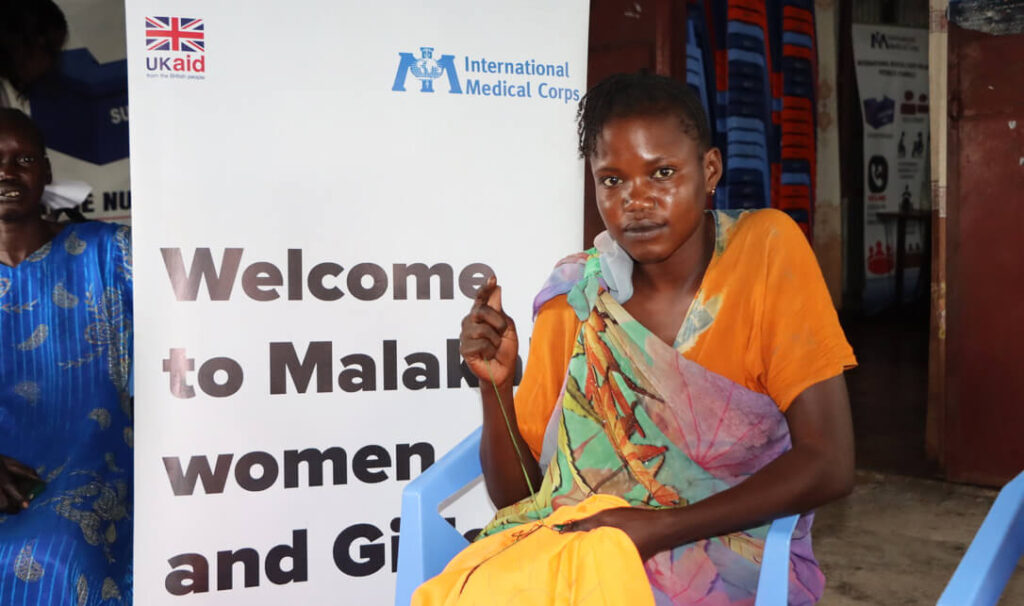In Malakal, South Sudan, where years of conflict have torn communities apart and displaced families, International Medical Corps’ women’s and girls’ safe spaces (WGSS) provide an opportunity for women to build social support systems that enhance resilience and positive coping strategies. WGSS are places where women and girls rebuild their lives, discover their potential and foster unity across tribal and community divides. For women like Iman and Nyankong, the WGSS in Malakal has served as a bridge from survival to belonging, helping them achieve inner and communal peace.
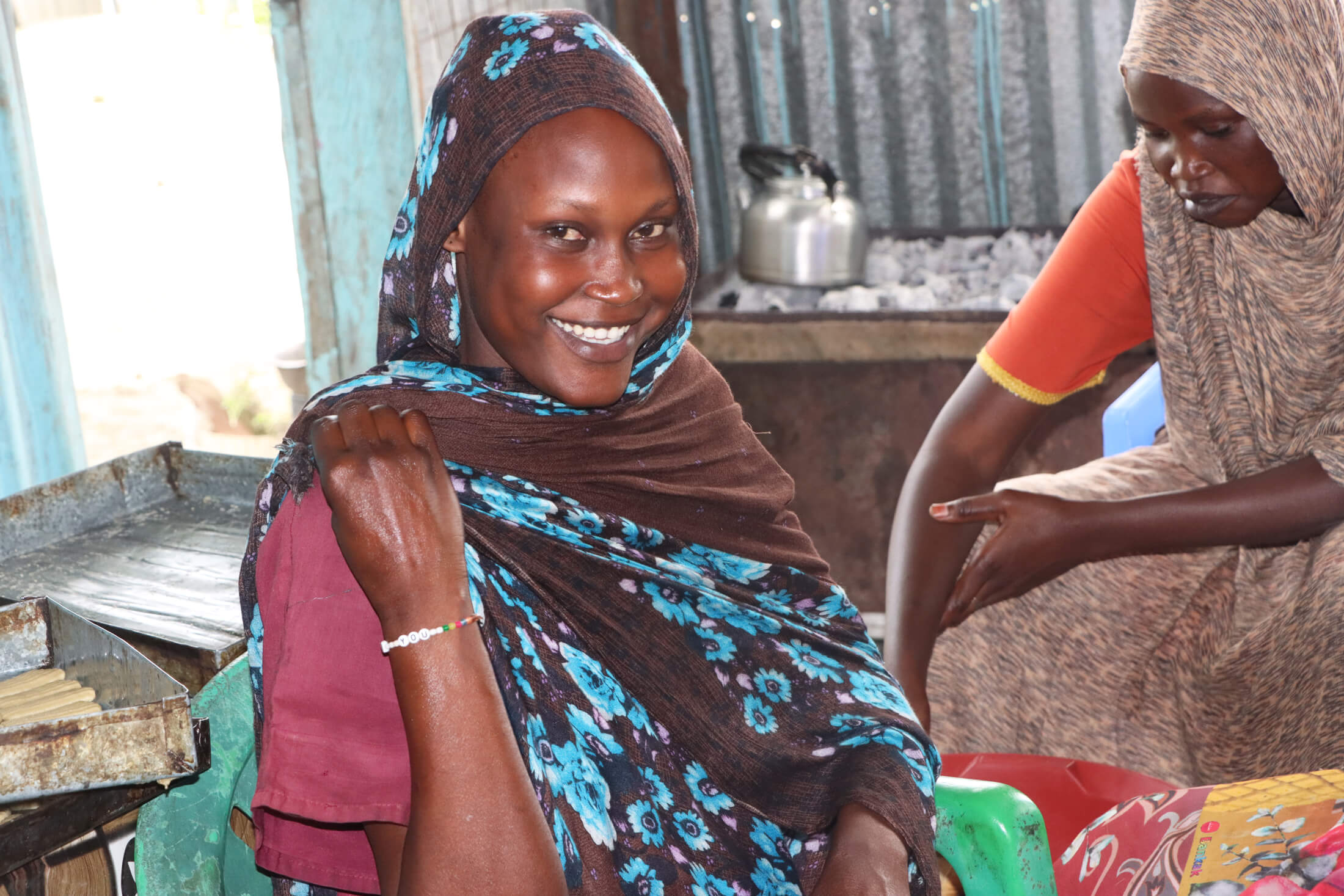
Iman Sabino, a 25-year-old mother of three, has lived in Malakal’s protection of civilians (PoC) site since 2014, after fleeing violence in Panyikang county. Life in the PoC has not been easy—crowded shelters, limited food and daily uncertainty have brought stress.
In 2019, her neighbour introduced her to International Medical Corps’ WGSS in Malakal. At the safe space, Iman learned embroidery, baking and other life skills that helped her navigate day-to-day challenges. Today, she earns an income by sewing bed sheets and selling cookies, enabling her to better support her family. However, her most significant transformation has been in her relationships.
“I used to fight with one of my neighbours, who is from another tribe,” she says. “Since we joined the WGSS, we have become best friends and support one another as needed. We are now examples of peace in our community.”
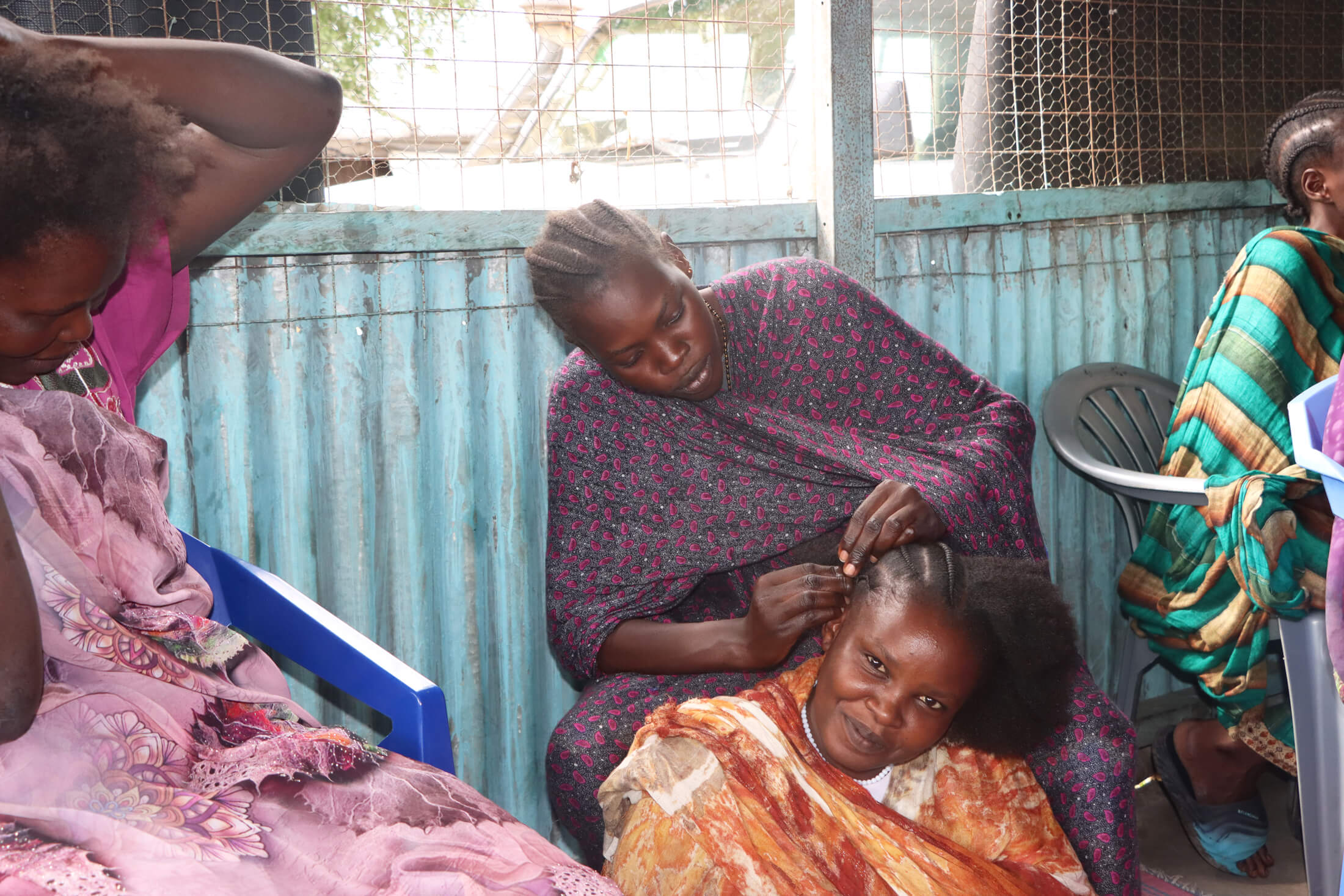
Through the WGSS, Iman also became part of a Rabita group—a women’s circle that gathers monthly in locations that rotate among households. In Rabita, women from different ethnic backgrounds share food, songs, dances and experiences. What began as a safe-space activity has extended into homes and communities, breaking down ethnic differences and reinforcing solidarity.
“At the home level, Rabita brings us together,” Iman explains. “It has removed tribal ideology. Now, when we dance or cook together, we see ourselves as sisters, not tribes.”
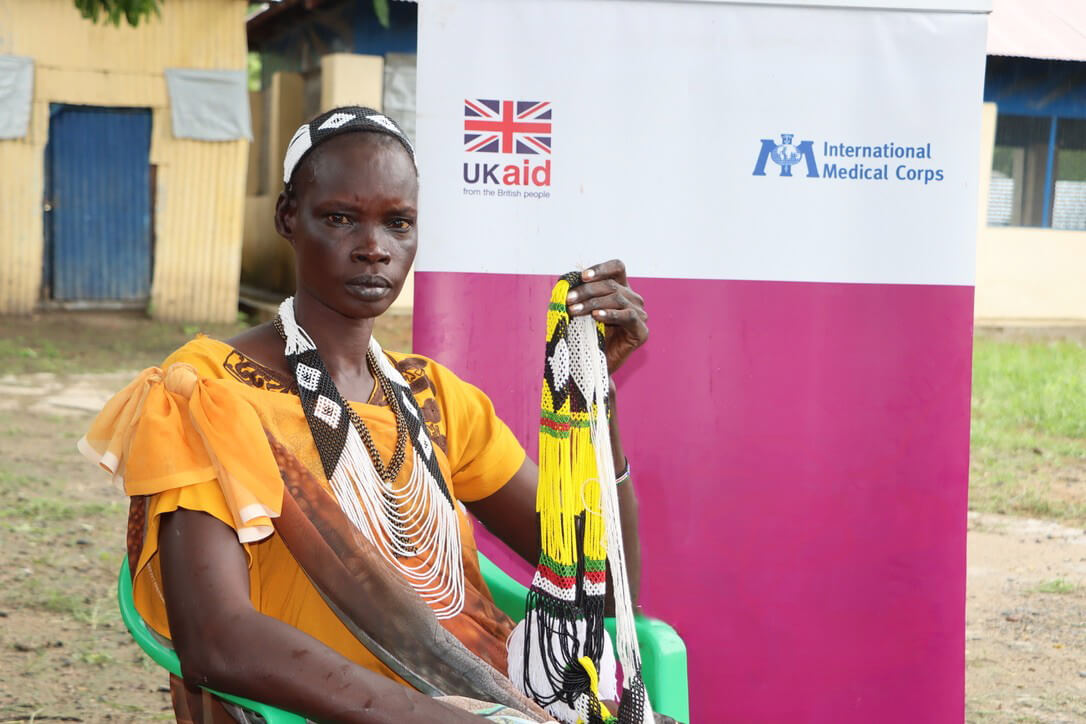
For 45-year-old Nyankong Diu, the WGSS in Malakal offered a fresh start after an unimaginable loss. Once a volunteer and small-business owner in Malakal, she lost her husband and home during the 2013 conflict and was forced to flee to Melut county with her children. When she returned to Malakal years later, she struggled to sustain a business due to high transport costs. In 2017, when she learned about the WGSS during an International Medical Corps community outreach activity, she found psychosocial support and acquired new skills.
“When I joined, I didn’t know how to do beading,” she recalls. “Now, I specialise in it.” But beyond skills, Nyankong found unity at the WGSS. “The centre brings women from all walks of life together. We share ideas regardless of our background.” Like Iman, she sees Rabita as a living example of peacebuilding. “It is not just about learning,” she says. “It is about building trust, friendship and healing across communities.”
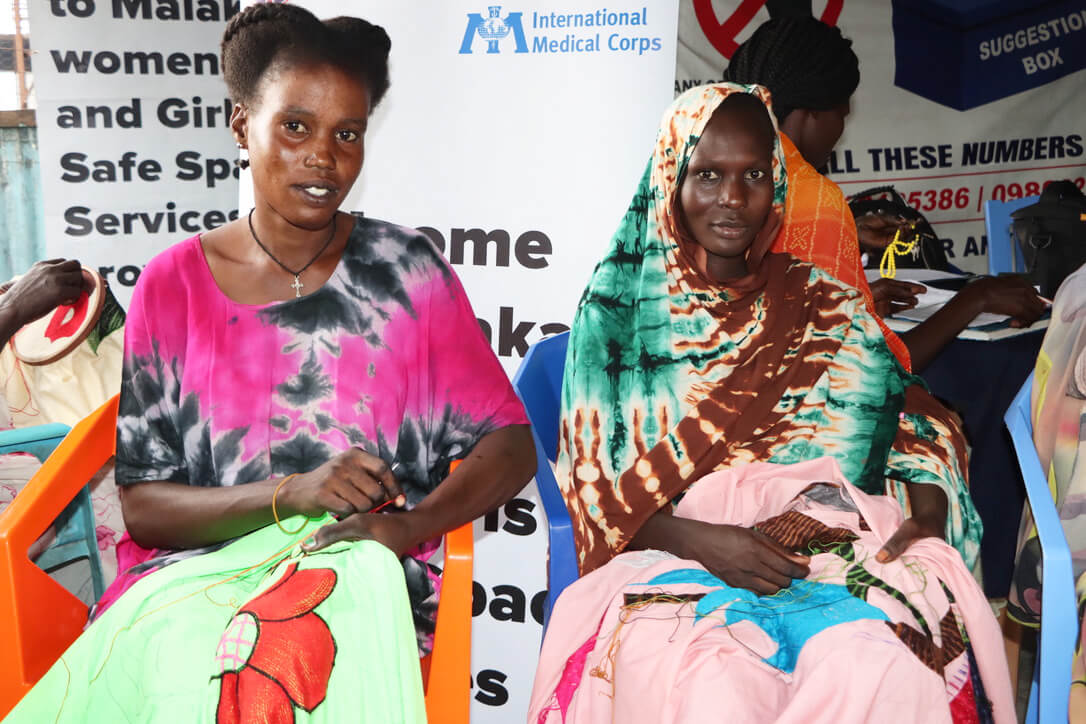
The Rabita groups demonstrate how lessons learned in the WGSS have spread into the wider community. What starts in the safe space as shared skills, dialogue and mutual respect continues in Rabita circles that transcend tribal and social divides. Women have taken ownership of peace, proving that healing is possible when dialogue replaces division.
Iman and Nyankong share the conviction that safe spaces are critical for peace and social cohesion in South Sudan. International Medical Corps supports several WGSS in South Sudan, where we provide psychosocial support and opportunities for women and girls to find and foster peace—and unity—in their communities.
Learn more about our work in South Sudan and how we’re bringing healing and hope to Malakal.
